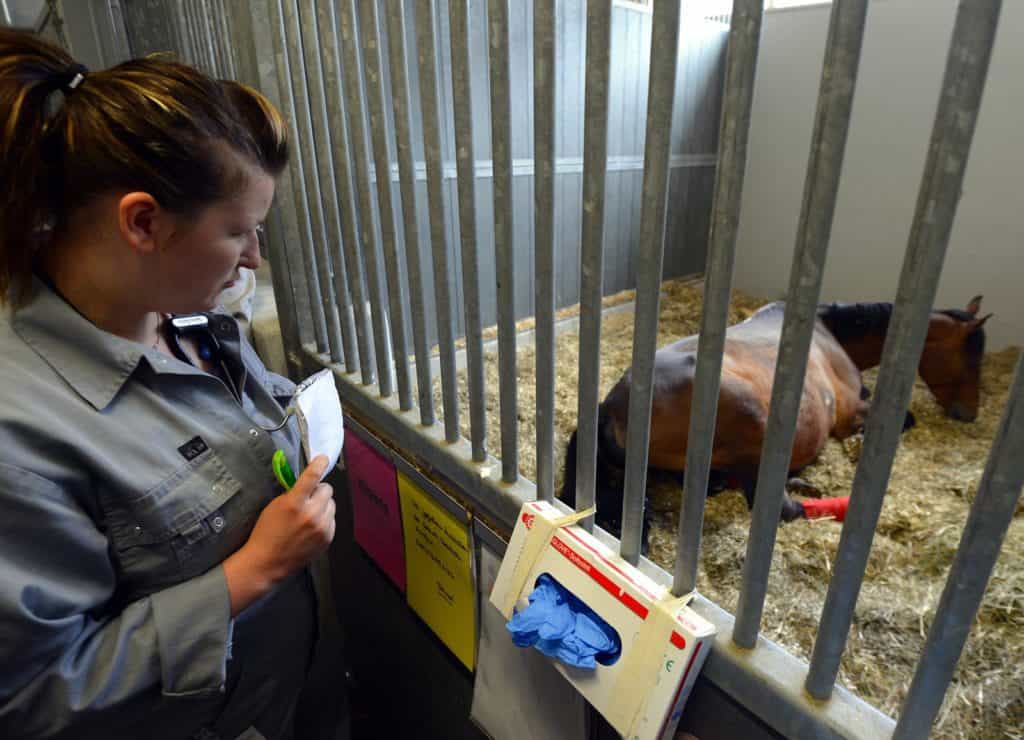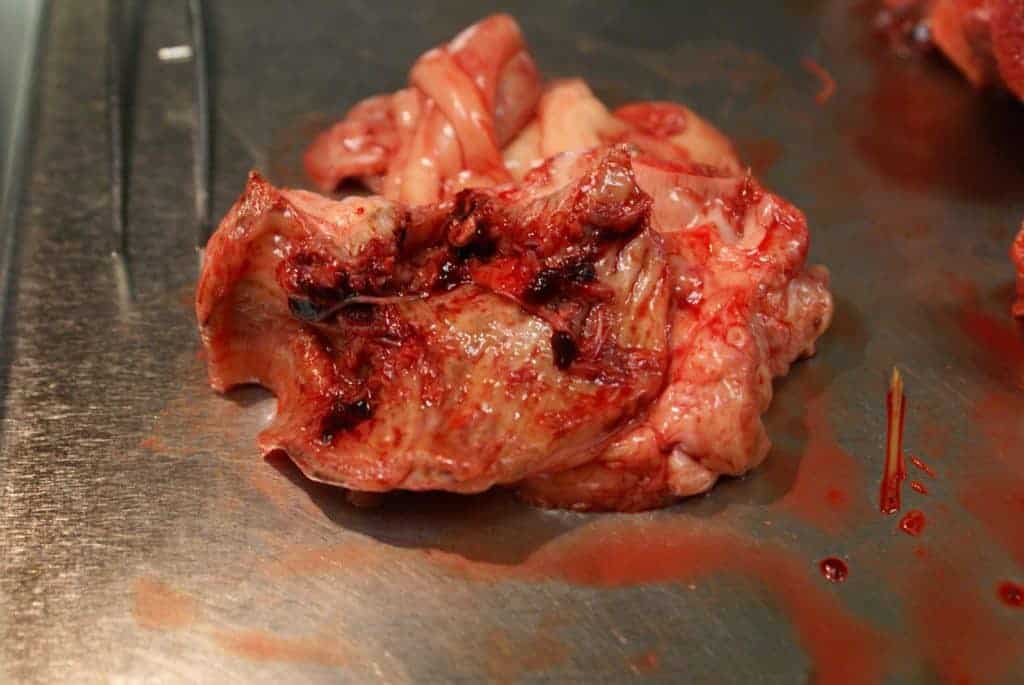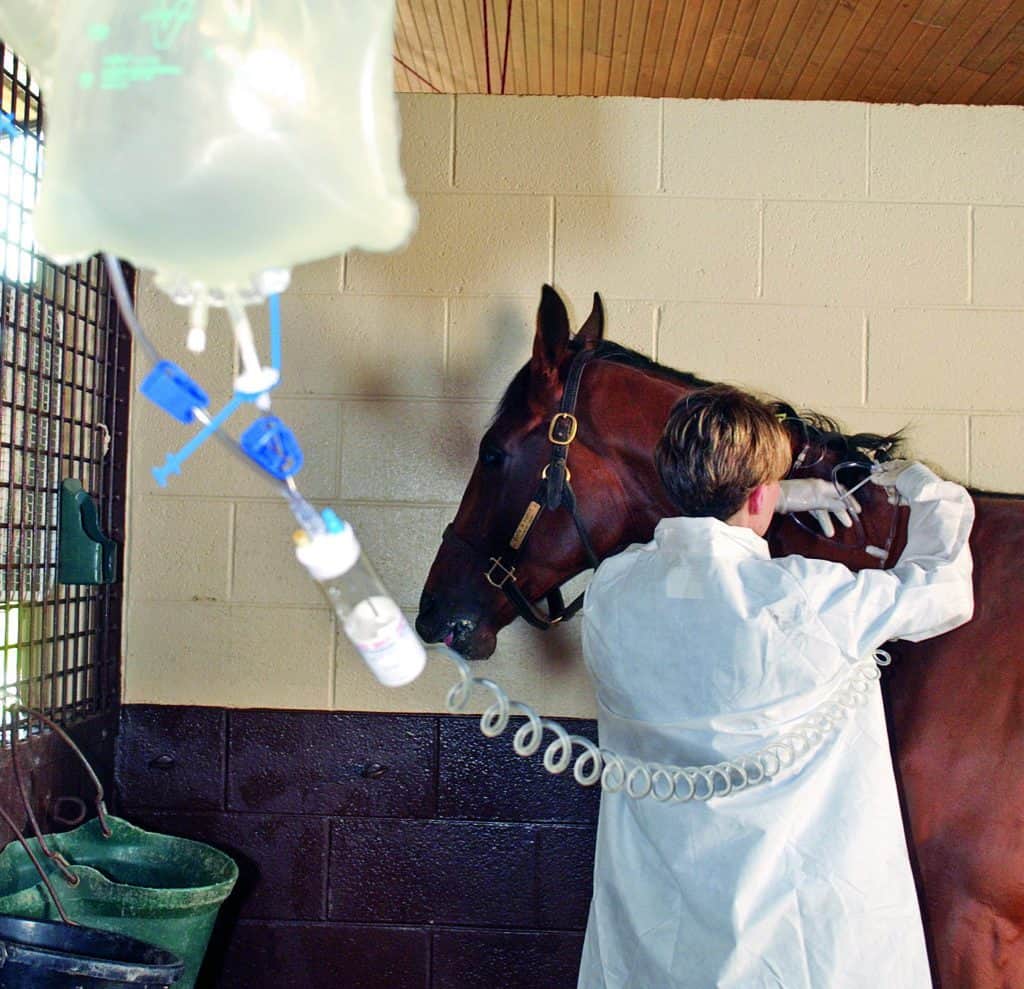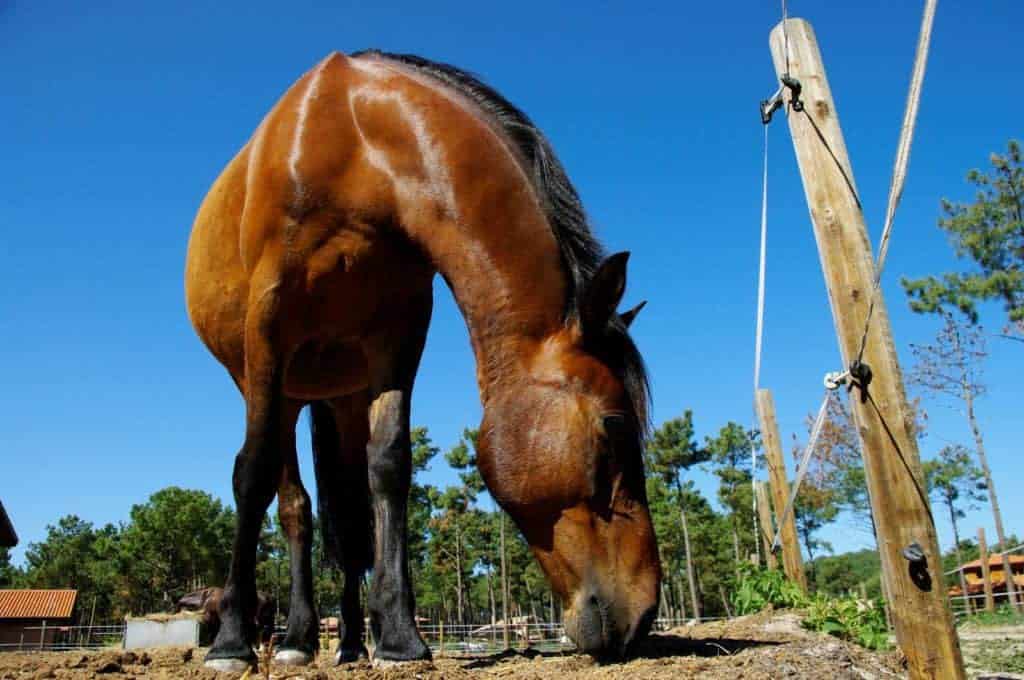
Colic: First Things First
Here are the steps to take and information to gather when faced with a colicking horse.

Here are the steps to take and information to gather when faced with a colicking horse.

Learn how vets use a technique called FLASH, a targeted abdominal ultrasound examination, to diagnose colic.

While vets have made progress in improving colic surgery in the past 40 years, there are still improvements to be made.

In the researchers’ clinic colic incidence among each group of patients was not significantly different.

Using a new test, researchers determined that bloodworms are associated with nonstrangulating intestinal infarctions.

Drought conditions pose unique health care and management challenges for horse owners. Here’s what you need to know.

Horses undergoing multiple colic surgeries in a 14-day period are at greater risk for incisional infections.

Learn how veterinarians can use these methods in concert to diagnose colic in horses.
Equine Guelph and Intercity are providing online workshops and tools to help owners reduce colic risk.
Study topics include laminitis, foal pneumonia, stem cells, endometritis, joint issues, insulin resistance, and more.

The three main types of medical treatment for colic include fluid therapy, laxative administration, and pain management.

Colic is a threat to horses, especially during cold weather. Our experts share feeding and hydration tips to protect your horse.

Here’s what current research, or lack thereof, is telling us about common equine supplement ingredients.
Dr. Scott Weese studies microbial populations in the horses’ digestive tracts, infection sources and carriers, and more.

Erin Venable, MS, PhD, is using cannulated horses to learn what goes on in a horse’s cecum.

A psyllium/magnesium sulfate combination appears safe and effective for helping horses evacuate sand from their colons.
Stay on top of the most recent Horse Health news with
"*" indicates required fields